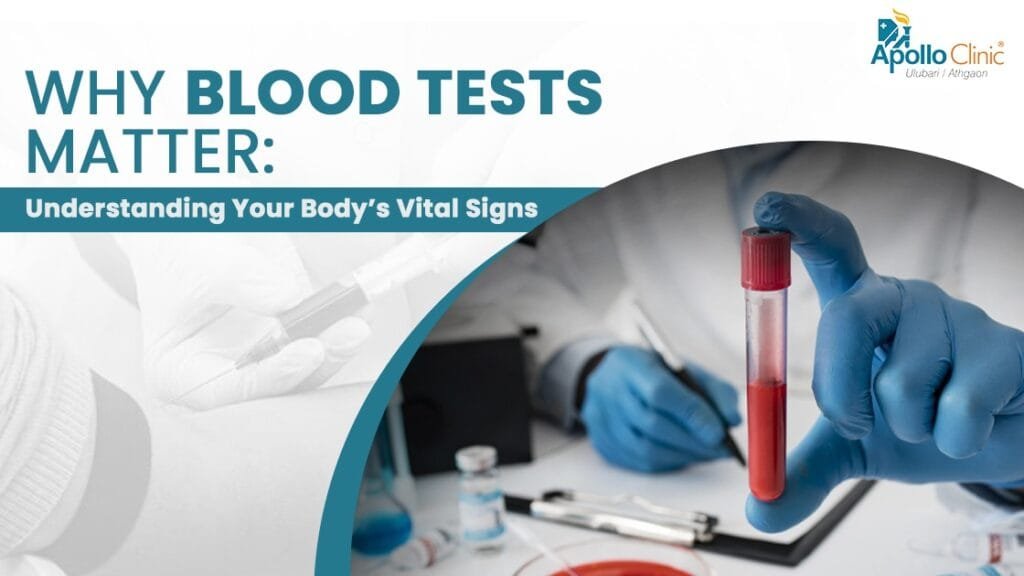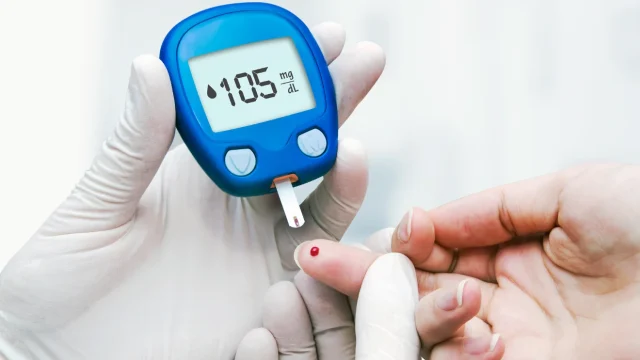Blood tests are not simply numbers on a page. Blood tests are invaluable resources for identifying critical aspects of your health. From early identification of diseases to ongoing monitoring of conditions, blood tests evaluate your body’s essential elements with accuracy and clarity.
According to the World Health Organization (WHO), approximately 70% of all medical decisions are based on laboratory tests, including blood tests. For this reason, blood test information is a primary building block of healthcare today.
Additionally, if you feel completely healthy, there may be unhealthy imbalances that are not visible. Blood tests may identify health issues that may be occult, such as elevated glucose or HbA1C levels, cholesterol imbalances, or vitamin deficiencies, before symptoms emerge. Blood tests can also assess organ health and monitor the trend over time, allowing for clarity around how your liver, kidneys, heart, and thyroid are performing.
What Are Blood Tests and Why Are They Important?
Blood testing is one of the most effective and common diagnostic tools used in medicine today. Blood tests analyze the composition of your blood: red blood cells, white blood cells, platelets, haemoglobin, hormones, enzymes, cholesterol, glucose, and more to give doctors a snapshot of what is happening inside your body.
Blood tests are important for tracking a variety of health concerns. From diagnosing common infections to chronic diseases such as diabetes, thyroid disease, heart disease, dysfunction of the liver, and even cancer, blood tests typically provide the first indicator of an asymptomatic health concern.
But their value doesn’t end with the diagnosis. Routine blood work is an integral part of preventative health. It can identify subtle changes or imbalances long before you present with symptoms, so you can address any issues early on.
Key Blood Tests and What They Reveal:
Blood testing is an essential health tool that conveys important information about your health. A Complete Blood Count (CBC) survey examines your overall blood health and can diagnose underlying issues such as anaemia or infection.
Liver Function Tests (LFT), and Kidney Function Tests (KFT) also offer a glimpse at how well these organs are functioning. Blood glucose tests identify and manage diabetes blood glucose levels, while thyroid function tests look at particular hormonal levels that regulate your metabolism and energy levels.
Furthermore, nutrient levels also offer visual examination levels of some basic essential vitamins & minerals that could dictate your wellbeing. Nutrient levels testing is tracked and can help you understand what minerals could be missing and alter intake action.
1. Complete Blood Count (CBC)
A CBC gives a complete overview of your red and white blood cells, haemoglobin levels, and platelets to detect:
- Anaemia
- Infections
- Inflammatory conditions
- Blood cancers like leukaemia
2. Liver Function Test (LFT)
This checks how well your liver is working, and this is significant to:
- Monitoring organ health
- Detect liver disease, such as hepatitis or fatty liver
- Review the impact of medications on liver enzymes
3. Kidney Function Test (KFT)
This can be done to measure how much urea, creatinine and electrolytes you have in your blood to see how well your kidneys are functioning. KFT tests are important for:
- Diagnosing chronic kidney disease
- Controlling blood pressure
- Monitoring side effects of medications
4. Blood Glucose Test
This is simply a test to determine how much glucose/sugar you have in your blood, and is used to:
- Diagnose diabetes or pre-diabetes
- Check glucose levels in diabetics
- Determine insulin resistance
5. Thyroid Function Test
These tests measure TSH, T3, T4 hormones and help identify:
- Hypothyroidism or hyperthyroidism
- Metabolic imbalance
- Fatigue Mood Changes
Blood Tests Vital Signs: What Do They Tell Us?
Your blood carries critical information about how your body is doing; it serves as an injector of sorts between your organs and your doctor, and the rest of us on a medical team. When we examine the many test components, including blood cell counts and ratios, electrolyte balance, the levels of various hormones, and multiple substrates and markers of inflammation, we receive a moment in time awareness, so to speak, of the status of your body’s important lifelines.
Changes can indicate infection or immune response if our findings include the white blood cells, abnormal in range or elevated liver aspartate and alanine aminotransferases (AST and ALT) may indicate liver damage or liver stress, and so on.
We gain valuable insight into ongoing medical illnesses, if you are found to be hyperglycemic, we know to evaluate for diabetes; if we note elevated insulin, that suggests insulin resistance and maybe metabolic syndrome, however we also become aware of existing conditions and potential early warning signs to allow early identification and treatment before any clinical symptoms arrive. Ultimately, he is reporting on the current health status from his test, irrespective of what you have explained to him, and it has much more information than a physical exam can provide.
Disease Identification
If you have a health condition, you won’t know anything about it until you have seen and treated any signs and symptoms. Regular blood testing can reveal warning signs before they become dangerous, which is the goal of treatment.
Health Condition Monitoring
Blood tests can help you monitor liver, kidney, heart, and thyroid function, which is valuable if you are being tested for certain health conditions or taking medications on a regular basis.
Nutrient Levels
Blood tests can show you are deficient in vitamins and minerals such as iron, vitamin D, vitamin B12, calcium, and others that impact your energy, immunity and health.
Chronic Condition Management
If you have chronic health conditions such as diabetes, high cholesterol, thyroid disorders or autoimmune disease, blood tests are the only way to monitor your progress in terms of treatment, and will help to determine appropriate medication dosages.
Immune Function
Blood tests may also give insight to how well your immune system is functioning. Low white blood cell count documented during a blood test may relate to immune suppression, whereas high counts may indicate infection or illness.
How Often Should You Get a Blood Test?
The number of blood tests you require will depend on a number of factors including age, health, family history, and lifestyle factors (e.g., smoking or drinking). Most healthy adults can benefit from a baseline blood test annually to monitor wellness over time and reveal signs of health changes.
If you have chronic diseases like diabetes, thyroid disease, or cardiovascular disease, your doctor may recommend more frequent tests, sometimes every 3-6 months, to closely monitor your condition and document treatment changes as needed.
Blood tests also reveal important information if you begin a new medicine, are becoming pregnant and planning a pregnancy, or have unexplained symptoms. However, many physicians will agree that the best answer is:
- A full blood analysis should be used annually for healthy individuals.
- Those with chronic illnesses or on long-term medication should test at least every 3-6 months based on physician recommendations.
- Older individuals should use increased tests for systematic, comprehensive testing in order to identify a variety of age-related conditions/illnesses.
Do You Need to Prepare Before a Blood Test?
Preparations for a blood test varies depending on which test you will be taking. Some routine blood tests do not have any preparation, and you can continue eating and drinking without restrictions before the test. However, for some tests, like fasting blood glucose or cholesterol (lipid profile), you will need to fast for 8 to 12 hours before the test.
This means no food or drinks, except water, for 8 to 12 hours. It is always recommended that you follow the instructions from your healthcare provider, as even little mistakes can skew your results. If you are at all confused, please ask the healthcare provider to explain again; it is in their best interest to help this process go as smoothly and effectively as possible.
The Role of Blood Tests in Preventive Healthcare
One great benefit of routine blood tests is that they take a preventive approach. Instead of responding to symptoms, blood tests give doctors and patients time to take action. This can:
- Prevention of complications
- Reduction in the number of hospital visits
- Improvement in quality of life over the long run
In many cases, just an ordinary test saved a life because of the detection of the hidden issue, like heart disease or cancer, where intervention could be successful if caught early.
Demystifying Blood Test Results
Interpreting your test report can be tricky. What does a high creatinine value mean? Does a low haemoglobin count reflect something serious?
Here’s a simpler view:
- Normal Range: This is the range thought to be healthy for the entire population.
- Below/Above Range: This doesn’t mean something is wrong; depending on your own health history, it might be fine.
- Your Doctor’s Perspective: Don’t get caught up in numbers. Your doctor will be able to interpret the results based on your overall health.
Common Myths About Blood Tests
Let’s take apart some common myths:
a) Myth 1: “I feel good, I don’t need to get tested or monitored.”
Fact: You may feel fine, but you may have a few conditions that blood tests will reveal.
b) Myth 2: “Blood tests are for the old people.”
Fact: Everyone needs to be tested, regardless of age. That being said, if you have a family history, then you need to be tested even more so.
c) Myth 3: “Tests are really expensive and there is no need to have them.”
Fact: Blood tests are regular, inexpensive tests that will save you money in the long run and avoid costly treatment.
Blood Testing Experience Improvement Suggestions
- Be hydrated: It can help to boost your veins size, thus making the blood collection easier.
- Be honest with your doctor: Be upfront with your doctor about your medications, your diet, and any health issues you may have.
- Don’t miss follow-ups: Only testing once won’t give you full documentation, you’ll look back, and regular testing gives you a more accurate timeline.
- Ask questions: If you have the reportable metrics, you may misinterpret, but knowing that will help you feel more confident about your decisions.
The Link Between Lifestyle and Test Results
Daily habits, such as diet, exercise, sleep, and stress can impact your blood test results. For instance, an unhealthy diet can lead to higher cholesterol levels, while consistent exercise may lead to improved blood sugar and heart health readings. Stress and lack of sleep can also alter hormones and weaken certain immune functions.
Realizing this connection allows you to utilize these lifestyle factors as your greatest asset in optimizing your blood tests, vital signs and health.
Here is how small changes can have a great impact:
- Eating well helps cholesterol, sugar, and liver enzyme readings.
- Getting regular exercise keeps the heart and other hormones balanced.
- Staying hydrated caters to the kidneys.
- Withering alcohol and tobacco use can help preserve liver function and can decrease inflammation signs in the blood.
When to See a Doctor
Schedule a consultation right away if your blood test is abnormal or if you have any of the following symptoms:
- Fatigue or light-headedness
- Sudden weight gain or loss
- Unusual appetite or digestion habits
- Changes in heart rhythm
- Ongoing infections
These symptoms, along with abnormal blood test results, could mean that there’s something more serious that warrants further investigation.
Conclusion
Whether you are tracking longitudinal health trends or testing nutrient levels, regular checks give you information from which you can be proactive about your health. The blood carries messages from every system within the body, and it is our job to help you read them and act on them.
If you want to remain on top of your health and understand why blood tests are so important beyond simply being a diagnosis, Apollo Clinic Ulubari’s experts are here to help.

Dr. Rajat Pincha
With a complete blood test history, we will help you track and safeguard your body’s vital signs before they become an issue.
Call us now at +91-9085612000 to schedule your consultation and start your journey to improved health.











